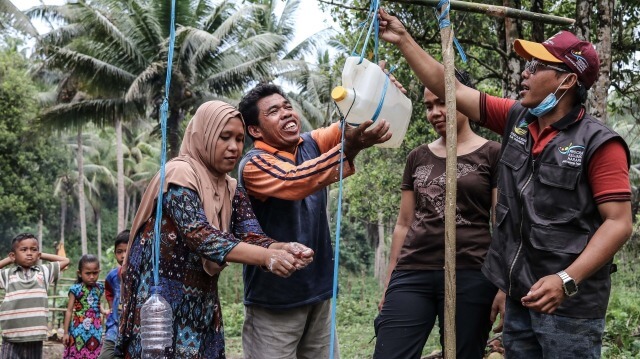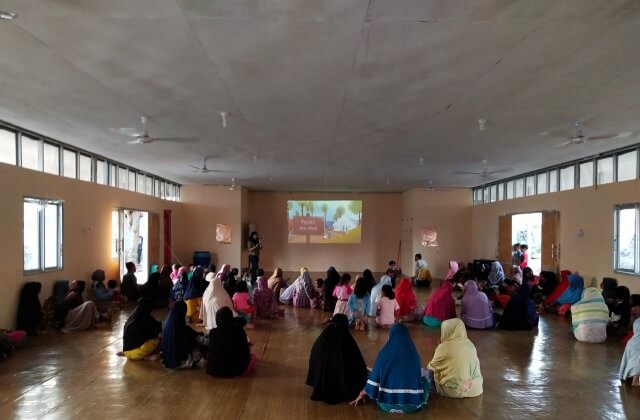In the early evening of 28 September 2018, Central Sulawesi was hit by a 7.4 magnitude earthquake followed by a 3-metre tsunami which severely damaged 3 locations; Palu, Donggala and Sigi.
Following the earthquake, liquefaction — a state of saturated granular soils behaving like a liquid — occurred in Petobo, Palu and Jono Oge, Sigi among several other locations. The National Disaster Mitigation Agency (BNPB) reported that these disasters resulted in over 2,200 casualties, and more than 220,000 internally displaced people.

Kopernik and UNICEF are partnering to improve hygiene awareness for disaster-affected families in Central Sulawesi. (Photo credit: Vanesha Manuturi/Kopernik)
In response to these disasters, UNICEF has engaged Kopernik to develop an innovative communication strategy to improve hygiene awareness in emergency settings. The project aims to ensure that affected communities are following good hygiene practices as they rebuild their lives in temporary accommodation after the disaster. Key messages complement the Sanitasi Total Berbasis Masyarakat (STBM) or the community-based total sanitation approach initiated by Indonesia’s Ministry of Health.

Evaluation of various communication assets are conducted in temporary accommodations to assess the response of affected communities. (Photo credit: Arvin Dwiarrahman/Kopernik)
Since February 2019, UNICEF and Kopernik have been developing a communication strategy that leverages mass media and social media channels in promoting hygiene messages among affected communities in Central Sulawesi. To spread awareness, animated videos, radio drama and a push SMS campaign will be launched and tested in affected areas. Key findings and results will then be analyzed with the aim to replicate and implement actionable practices in the case of future emergency disasters.


